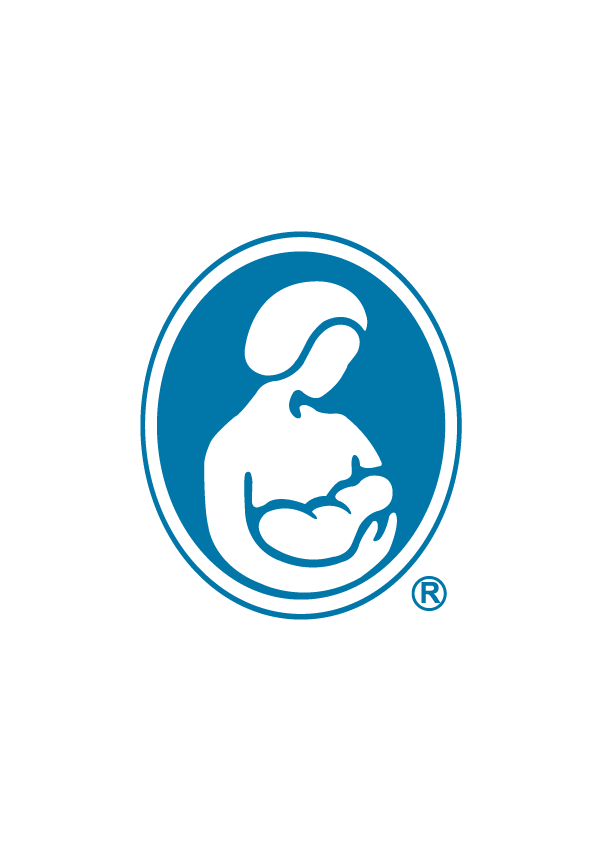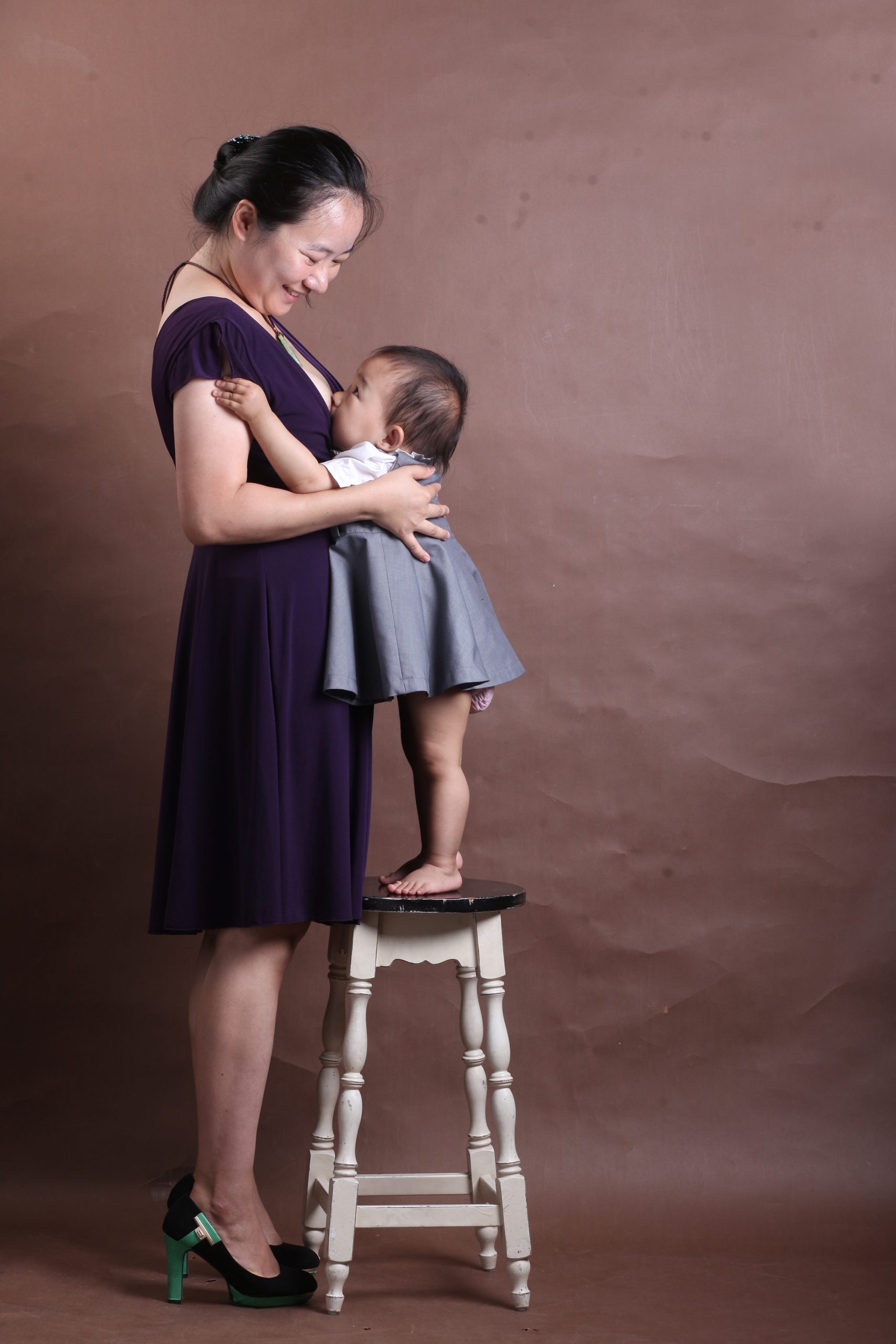母乳喂养宝宝应该补充维他命或氟化物吗?
Should My Breastfed Baby Be Receiving Vitamin or Fluoride Supplements?
Advertisements, family members and even health professionals often urge mothers to add “something” to baby‘‘s perfect diet of mother‘‘s milk. According to the our comprehensive guidebook, THE WOMANLY ART OF BREASTFEEDING, if a breastfeeding mother is getting an adequate supply of vitamins in her diet, her milk will contain adequate nutrients in the perfect balance for her baby. If your baby is healthy and doing well, there is no need for vitamins, iron, or other supplements in the early months. Furthermore, many mothers have found that vitamin or fluoride supplements may cause fussiness or colic in their infants. By treating each mother and baby as a unique pair, unnecessary supplementation can often be avoided.
广告、您的家人,甚至一些医疗专业人员常常会敦促您在母乳这一完美食物外再给宝宝加点“东西”。 我们的综合指南《母乳喂养的女性艺术》中提到,如果母乳喂养的妈妈从饮食中获得足够的维生素,其分泌的母乳也将含有足够均衡的养分供给宝宝。如果您的宝宝健康,状态良好,就没有必要在最初几个月额外为宝宝增加维生素、铁或其他补充剂。此外,许多妈妈发现,维生素或氟化物补充剂可能导致某些宝宝异常哭闹或出现腹绞痛。如果我们将每对妈妈和宝宝作为独特的一对来看待的话,我们经常可避免添加不必要的补充剂。
Concerns are sometimes raised about the breastfed baby‘‘s need for these specific nutrients:
有时有人担心母乳喂养的宝宝或许需要添加下述特殊营养物质:
Vitamin D
Exclusively breastfed healthy, full-term infants from birth to six months who have adequate exposure to sunlight are not at risk for developing vitamin D deficiency or rickets. Rickets occurs because of a deficiency in sunlight exposure, not because of a deficiency in human milk.
维生素D
纯母乳喂养的健康足月宝宝从出生到六个月,如晒太阳时间足够,就不会有维生素D缺乏症或佝偻病风险。佝偻病的发生原因是缺少日照,而不是因为母乳营养物质的缺失。
La Leche League International‘‘s THE BREASTFEEDING ANSWER BOOK, 3rd Edition, lists the following risk factors for vitamin D deficiency:
国际母乳会“母乳喂养问答手册”第三版,列举了如下产生维生素D缺乏症的危险因素。
Dark skin
深色皮肤
Consistent coverage of skin with clothing or sunscreen when outdoors
户外时衣物总是包裹太严或使用防晒霜
Live in areas where there is little sunlight for parts of the year or do not go outdoors
生活在阳光少的地区,或不参加户外活动
Live in areas of heavy air pollution, which blocks sunlight
生活在空气污染严重的地方,使得这些地方阳光照射受阻
Mother is vitamin D deficient
妈妈维生素D缺乏
Other risk factors include:
其他一些风险因素还包括:
increased birth disorder?
出生缺陷
exposure to lead
铅暴露
the replacement of human milk with foods low in calcium or foods that reduce calcium absorption
用低钙食物或减少钙吸收的食物代替母乳
Iron
According to THE BREASTFEEDING ANSWER BOOK, published by LLLI, the iron in human milk is better absorbed by your baby than is the iron in cow‘‘s milk or iron-fortified formula. This means that the quantity of iron in human milk is appropriate for baby instead of the larger quantity in cow‘‘s milk. The full-term healthy baby usually has no need of additional iron until about the middle of his first year, around the time he starts taking solids. The high lactose and vitamin C levels in human milk aid the absorption of iron, and breastfed babies do not lose iron through their bowels.
铁
根据“母乳喂养问答”一书,与牛奶和高铁配方奶粉相比,母乳中的铁能更好地被宝宝吸收,也就是说,母乳中铁的含量最适合宝宝的需求,而不是牛奶中大量的铁。足月健康的宝宝在0-6月内,添加固体辅食之前,通常不需要补充额外的铁。母乳中含量很高的乳糖和维生素C水平有助于铁的吸收,母乳喂养的宝宝不会通过其排便失去铁。
If there is concern about the baby‘‘s iron levels, a simple hemoglobin test can be done in the doctor‘‘s office. If necessary, it is easy to offer the baby foods which are naturally rich in iron. However, iron drops and iron-fortified foods sometimes cause digestive upsets when given to babies and can actually reduce the efficiency of iron absorption.
如果担心宝宝缺铁,只要到医院做个简单的血红蛋白测试就可以了。如果必要,给宝宝提供天然的富含铁的食物也很容易。但含铁滴液和铁强化食品有时会导致宝宝消化系统紊乱,也会降低铁的吸收功效。
Women are often advised to continue to take prenatal vitamins as long as they are breastfeeding and these vitamins often include a large dose of iron. The iron levels in a mother‘‘s milk are not affected by the amount of iron in her diet or by iron supplements she may take.
人们往往建议妇女在母乳喂养时期继续服用产前服用的维生素,这些维生素往往含大剂量的铁。然而母乳中铁的含量不受她从饮食中或铁补充剂中获得的铁含量的影响。
Fluoride
The American Academy of Pediatrics recommended in its 1997 policy statement that babies younger than six months should NOT receive fluoride supplements and that babies older than six months receive supplements only if they live in an area where the drinking water contains less than 0.3 ppm of fluoride. Fluoride supplements tend to contribute to excess intestinal gas (wind).
氟化物
美国儿科医师学会在其1997年的声明中建议,不超过6个月大的宝宝不应该补充氟化物。超过6个月大的宝宝只在特定情况下补充氟化物,即其生活饮用水中氟化物含量少于0.3ppm时。氟化物的补充往往导致产生过多的肠道气体。
Vitamin B12
Vitamin B12 supplements are strongly recommended for mothers who adhere to vegetarian diets that include no animal products, such as vegan and macrobiotic diets. Such diets can lead to a vitamin B12 deficiency in mother and/or baby because this vitamin is primarily available from animal protein. Symptoms of Vitamin B12 deficiency may include loss of appetite, regression in motor development, lethargy, muscle atrophy, vomiting, blood abnormalities and neurological problems. If caught early enough, treatment with vitamin supplements can completely resolve these symptoms.
维生素B12
强烈建议那些不摄取任何动物性食物的素食妈妈补充维生素B12。素食主义饮食和“延寿”饮食等可导致妈妈及宝宝维生素B12缺乏,因为维生素B12主要从动物蛋白中获得。维生素B12缺乏症状可包括食欲不振、运动功能发展倒退、嗜睡、肌肉萎缩、呕吐、血异常和神经系统问题等。如及早治疗,用维生素补充剂就可彻底消除这些症状。

